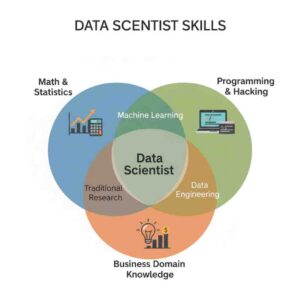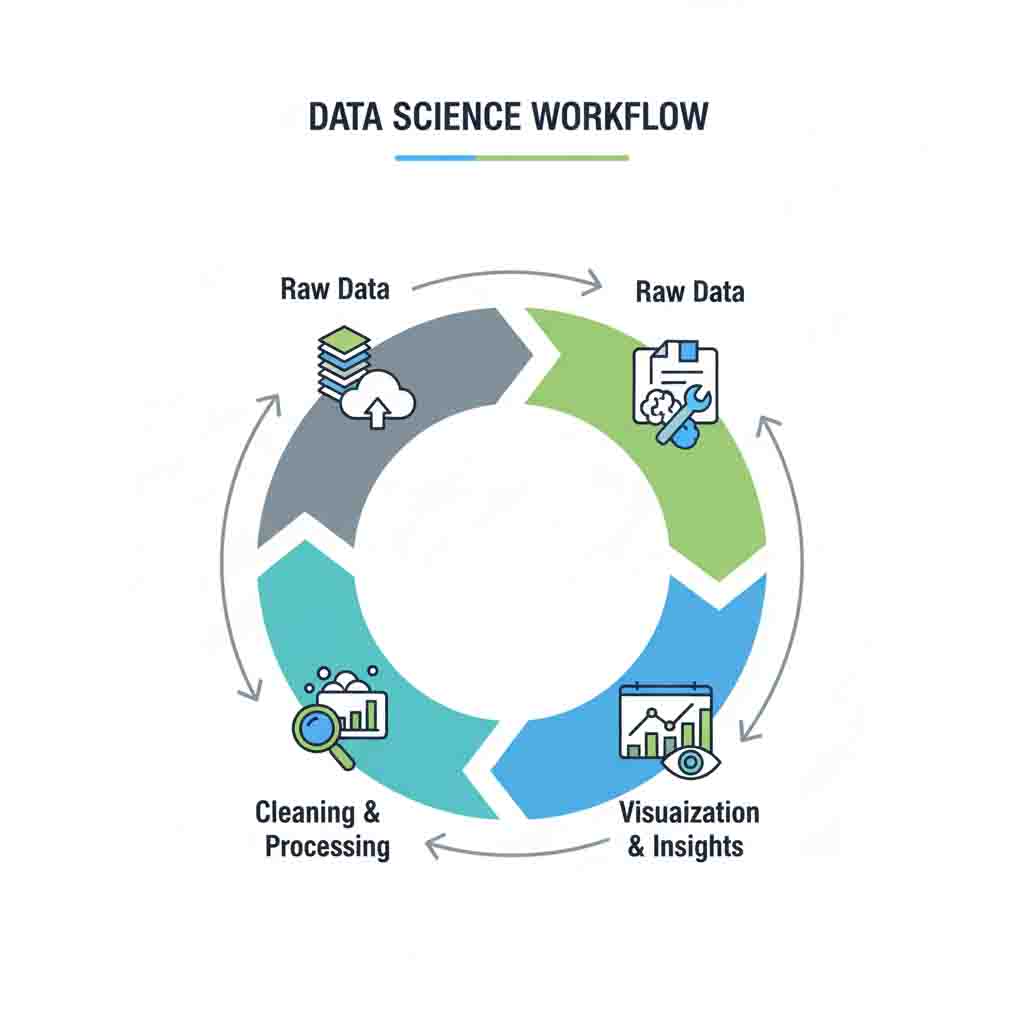What is a Data Scientist? The Ultimate Career Guide
In today’s data-driven world, the Data Scientist has emerged as one of the most coveted and highly-paid professionals. But what exactly do they do? Simply put, a Data Scientist is a skilled detective who uncovers hidden insights and solves complex problems within vast amounts of data, using a blend of statistics, programming, and business acumen to guide strategic decisions.
The Daily Role: More Than Just Numbers
A Data Scientist’s workflow is a structured journey from raw data to actionable insight:
-
Data Acquisition & Cleaning: They gather data from various sources and spend significant time “cleaning” it—handling missing values and inconsistencies—to ensure its quality. This foundational step is crucial for accurate analysis.
-
Exploratory Analysis & Modeling: Using programming languages like Python or R, they explore the data to find patterns and trends. They then apply machine learning algorithms and statistical models to predict future outcomes or classify data.
-
Communication & Visualization: Perhaps the most critical skill is translating complex technical findings into clear, compelling stories for non-technical stakeholders. Tools like Tableau or Power BI are used to create dashboards and reports that drive business strategy.
Essential Skills You Need to Master
To thrive in this role, a blend of technical and soft skills is required:
Technical Skills: Proficiency in Python (especially libraries like Pandas, NumPy, and Scikit-Learn), SQL for database querying, and a strong foundation in statistics and probability are non-negotiable.

Soft Skills: Critical thinking, curiosity, and communication are paramount. You need to ask the right questions and explain your discoveries effectively.
Career Outlook & How to Start
The career outlook is exceptionally strong. According to the U.S. Bureau of Labor Statistics, employment in this field is projected to grow much faster than the average for all occupations. To start your journey:
-
Build a Foundation: Master Python, SQL, and basic statistics through online courses or bootcamps.
-
Work on Projects: Create a portfolio of personal projects that solve real problems with data. This is your most valuable asset when applying for jobs.
-
Consider Formal Education: While not always mandatory, a degree in data science, computer science, or a related field can be beneficial.


